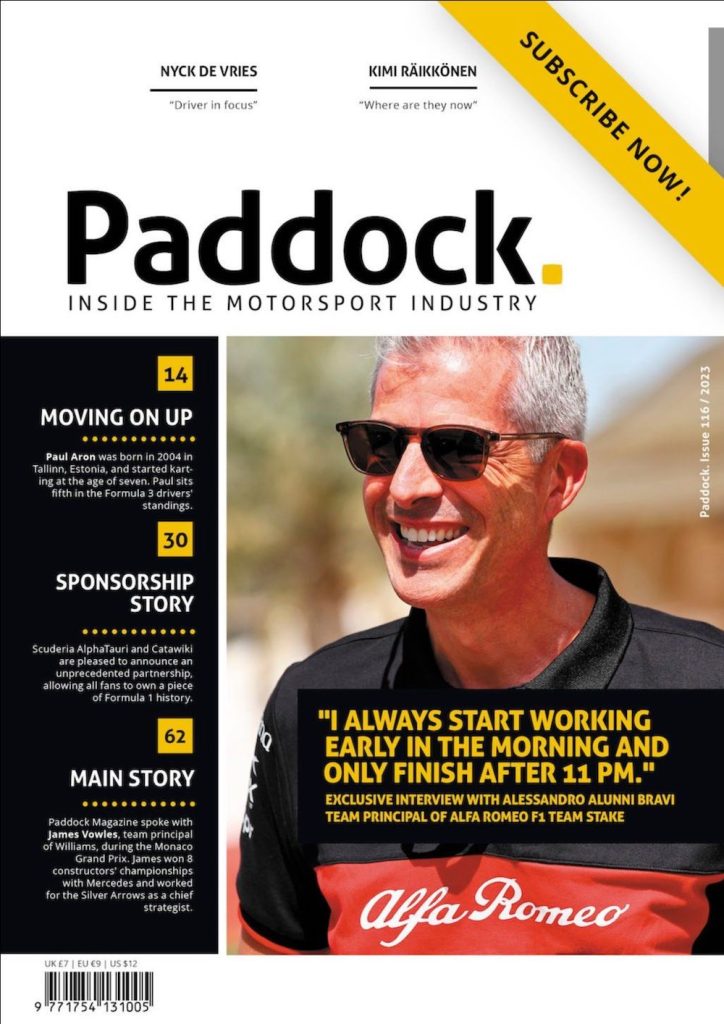All good things come to an end and one day sooner rather than later Bernie Ecclestone will be forced to surrender his position at the helm of Formula 1. Ecclestone is indeed very active for his age, but he cannot run the sport forever. We should all brace ourselves for the world after Bernie. A good form of preparation is defining some of the qualities that his successor should possess.
Click here to subscribe to our print edition!
Well-connected
There is a reason why Ecclestone has led Formula 1 for the better part of the last forty years. He is the master of deal spinning. The British billionaire knows the right people and how to use his connections to get the right deals for the sport and for himself. The same should be expected from his successor – to know the kind of people that will help grow the sport.
What should change is the type of connections that F1’s supremo needs. Nowadays, information is more valuable than oil (Apple, Google and Microsoft are among the world’s largest companies in term of market capitalisation), so we need a leader that understands the reality of business in the 21st century. An executive from the Silicon Valley might be more successful at bringing the technology world closer to Formula 1 than managers that are already working within Formula 1.
We cannot expect the fans to pay more for a product without a respective increase in quality.
Open and impartial
A good leader should know how to keep all stakeholders of a business happy. Ecclestone’s backroom deal mastery might win him respect and support among old boy networks, but it certainly does not sit well with the fans. Formula 1 is not only a business. It is also a sport. Having special deals with the likes of Ferrari and Red Bull certainly does not sit well with fans that expect the organisers to be completely impartial.
The lack of transparency surrounding the Concorde agreements can be particularly off-putting to younger fans that have romantic expectations about honest leadership. The sport needs to evolve to stay relevant and in the Information Age, the secrecy associated with the running of the sport is an issue that Ecclestone’s successor should be ready to tackle. The expectations of impartially further suggest that the likes of Christian Horner and Ross Brawn are not the right people to fill the top spot as their ties with former employers will always cast a shadow over controversial decisions.
Good at delegating responsibility
Christian Horner was actually quite accurate when he admitted last year that he could not see how anyone individual could replace Ecclestone. A normal executive cannot do all the things the F1 supremo is doing even now (despite his advanced age!). The next boss of the sport, however, does not need to. Just like every other modern manager, he would need to be good at delegating responsibilities to the right people.
Mercedes with their view that “the Team Principal position is a thing of the past” is correct in outlining that authoritarian leadership is not what a modern business needs. Ecclestone’s complete control over the running of Formula 1 means that everybody within the industry is afraid to even consider a future without him. Such responsibility should not continue to be focused on one man as an accident can completely cripple the management of the sport.
Forward-thinking
Do not get me wrong, Ecclestone is great at doing what he does. In every given moment, he is successful at spinning good short-term deals for the sport. What Formula 1’s current supremo has been lacking in recent years is the vision for the future. Moving the sport to paid televisions across the board and taking the races to markets in which the local fans cannot afford to pay for tickets might be lucrative at the moment but will limit the ability of Formula 1 to grow in the future.
We cannot expect the fans to pay more for a product without a respective increase in quality. The next leader of F1 should give more rather than less access. Ferrari and McLaren are the only two big entities in Formula 1 that would be marginally interested in keeping the sport exclusive, but even their managers realise that the Hondas and Fiats of the world are not into exclusivity nowadays. The likes of Red Bull and Martini are also not within the sport for the “top 1%,” so rather than figuring out how to keep more and more potential fans out, Formula 1’s next leader should know how to connect and use the assets of the sport in a more efficient manner. No, Youtube is not the enemy.
There is life for Formula 1 after Bernie, but the owners of the commercial rights should be careful in choosing his successor. Our list suggests that a clone of Ecclestone might not be what we really need going forward. We need a visionary and the sooner he starts being groomed to take over, the better.






Related Articles